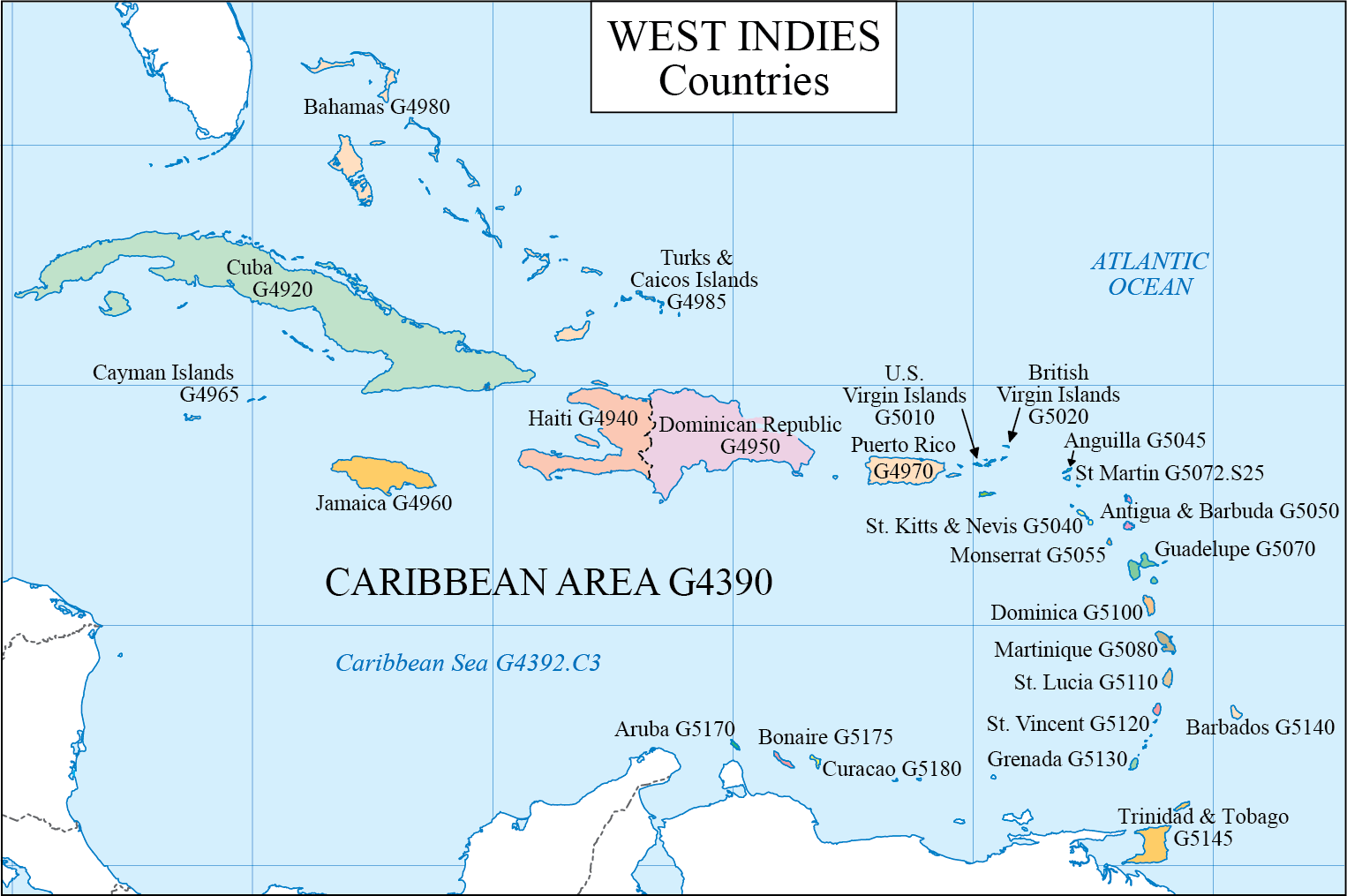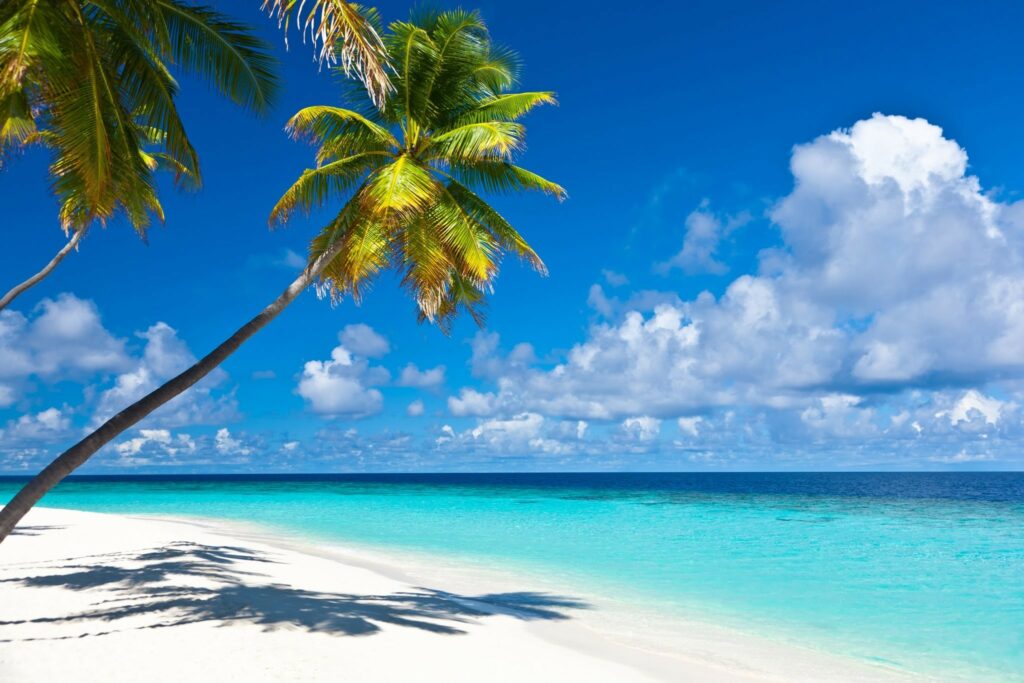Introduction
The Caribbean is a region known for its stunning landscapes, vibrant cultures, and rich history. Comprising numerous islands and nations, each with its own unique identity, the Caribbean offers a diverse and captivating tapestry for travelers and enthusiasts. This comprehensive guide aims to delve into the essence of Caribbean countries, providing an in-depth exploration of their geography, history, culture, and attractions.
Geography of the Caribbean
The Caribbean is a vast archipelago situated between North and South America, surrounded by the Atlantic Ocean and the Caribbean Sea. The region consists of over 700 islands and islets, forming the Caribbean islands. These can be categorized into three main groups: the Greater Antilles, the Lesser Antilles, and the Bahamas.
Greater Antilles
The Greater Antilles include larger islands like Cuba, Jamaica, Hispaniola (comprising Haiti and the Dominican Republic), and Puerto Rico. These islands boast diverse landscapes, from the lush mountains of Jamaica to the tobacco fields of Cuba.
Lesser Antilles
The Lesser Antilles form an arc of smaller islands extending from the Virgin Islands in the north to Trinidad and Tobago in the south. This chain can be further divided into the Windward Islands and the Leeward Islands, each offering a unique blend of natural beauty and cultural heritage.
The Bahamas
Although not technically part of the Caribbean Sea, the Bahamas are often included in discussions about the Caribbean due to their geographical proximity. This archipelago, with its crystal-clear waters and sandy beaches, is a popular destination for sun-seekers and water enthusiasts.
History and Influences
The history of the Caribbean is marked by a complex interplay of indigenous cultures, European colonization, African slavery, and the influences of various immigrant groups. Indigenous peoples such as the Arawaks and Caribs inhabited the region before the arrival of Christopher Columbus in 1492, leading to the beginning of European colonization.
Colonial Era
The Caribbean became a focal point of European colonization, with various powers, including Spain, Portugal, France, and England, establishing colonies and engaging in intense competition for dominance. The impact of this colonial period is still evident in the architecture, language, and cultural practices of many Caribbean countries.
Slavery and the African Diaspora
The transatlantic slave trade had a profound and lasting impact on the Caribbean. Millions of Africans were forcibly brought to the region to work on plantations, contributing significantly to the development of the Caribbean’s unique cultural mosaic. The legacy of slavery is reflected in the music, dance, religion, and cuisine of the Caribbean nations.
Independence and Modern Era
Throughout the 20th century, Caribbean countries gained independence from colonial rule. Today, the region comprises independent nations and territories, each with its own government and political structure. The post-colonial era has brought challenges and opportunities, shaping the diverse socio-political landscape of the Caribbean.
Culture and Traditions
The cultural richness of the Caribbean is a testament to its history and the convergence of diverse influences. From music and dance to cuisine and festivals, Caribbean culture is a vibrant tapestry that continues to evolve.
Music and Dance
The Caribbean is renowned for its contributions to world music. Reggae, originating from Jamaica and popularized by icons like Bob Marley, has become a global symbol of rebellion and unity. Other genres, including calypso, soca, and merengue, showcase the rhythmic diversity of the region. The infectious beats of the Caribbean find expression in traditional dances such as salsa, samba, and the lively Carnival celebrations.
Cuisine
Caribbean cuisine is a delicious fusion of African, European, and indigenous flavors. Staples like rice and beans, plantains, and seafood are common, but each country adds its unique twist. Jerk seasoning in Jamaica, Creole influences in Haiti, and the spicy flavors of Trinidadian cuisine are just a few examples of the region’s diverse culinary offerings.
Festivals and Celebrations
Caribbean festivals are colorful and lively expressions of the region’s joie de vivre. Carnival, celebrated across many Caribbean nations, is a spectacular event featuring parades, elaborate costumes, and music. In Trinidad and Tobago, Carnival is a major highlight, drawing visitors from around the world. Other festivals, such as Junkanoo in the Bahamas and Crop Over in Barbados, showcase the dynamic cultural heritage of the Caribbean.
Top Destinations in the Caribbean
The Caribbean is a treasure trove of stunning destinations, each offering a unique blend of natural beauty and cultural experiences. While the list is extensive, a few standout destinations are worth special mention.
Cuba
Cuba, the largest island in the Caribbean, is a melting pot of history, culture, and natural wonders. Havana, the capital, is renowned for its colonial architecture and vibrant street life. The lush Viñales Valley, with its tobacco plantations and limestone hills, offers a scenic escape. Trinidad, a UNESCO World Heritage site, provides a glimpse into the country’s colonial past.
Jamaica
Known for its reggae music and laid-back vibes, Jamaica is a popular destination for those seeking both relaxation and adventure. The Blue Mountains, home to the world-famous Blue Mountain coffee, offer hiking opportunities with breathtaking views. The Dunn’s River Falls and the vibrant city of Kingston are must-visit attractions.
Dominican Republic
Sharing the island of Hispaniola with Haiti, the Dominican Republic boasts diverse landscapes, from pristine beaches to lush mountains. Punta Cana is famous for its luxurious resorts, while the historic Zona Colonial in Santo Domingo provides a glimpse into the country’s colonial past. The natural beauty of Jarabacoa and the beaches of Samaná add to the allure.
Trinidad and Tobago
This twin-island nation is known for its lively Carnival celebrations and rich cultural heritage. Port of Spain, the capital, is a bustling city with a mix of colonial and modern architecture. Tobago, the smaller of the two islands, offers pristine beaches and a more laid-back atmosphere.
Barbados
Barbados, the easternmost island in the Caribbean, is celebrated for its white-sand beaches and vibrant coral reefs. Bridgetown, the capital, is a UNESCO World Heritage site with historic buildings and a lively atmosphere. The Bathsheba coastline is a favorite spot for surfers, while the Barbados Wildlife Reserve offers a chance to see local fauna.
Travel Tips and Practical Information
Visa Requirements Travelers to the Caribbean should be aware of the visa requirements for each specific country. While some nations may allow visa-free entry for certain passport holders, others may require a visa application in advance. It’s essential to check the latest visa regulations before planning a trip.
Health and Safety
Health precautions, including vaccinations and travel insurance, are crucial when visiting the Caribbean. Mosquito-borne illnesses like Zika and dengue fever are concerns in some regions. Additionally, hurricane season runs from June to November, so travelers should be aware of weather conditions and plan accordingly.
Currency
The currency used in the Caribbean varies by country. While some nations use the Eastern Caribbean dollar (XCD), others, like Jamaica, use the Jamaican dollar (JMD). It’s advisable to familiarize oneself with the local currency and exchange rates before traveling.
Local Transportation
Transportation options within the Caribbean vary, with each country having its own infrastructure. Renting a car may be ideal for exploring larger islands, while public transportation, including buses and taxis, is often available. Ferries and inter-island flights are common for those looking to hop between different islands.
Respect for Local Customs
Respecting local customs and traditions is essential when traveling in the Caribbean. While the region is known for its relaxed atmosphere, it’s important to be aware of cultural nuances and behave respectfully. Dress codes may apply in certain areas, and polite gestures such as greeting locals with a smile can go a long way.
Conclusion
The Caribbean is a kaleidoscope of beauty, history, and culture, beckoning travelers to explore its diverse nations and experience the warmth of its people. From the rhythmic beats of reggae in Jamaica to the colonial charm of Cuba, each Caribbean country offers a unique and enriching journey. Whether seeking relaxation on pristine beaches, diving into the vibrant local culture, or exploring the historical landmarks, the Caribbean promises a memorable adventure for every type of traveler. This comprehensive guide provides a starting point for those eager to embark on the enchanting voyage through the Caribbean, uncovering the treasures that await on these sun-kissed islands.
- 10 Fascinating Facts About Caribbean Culture - September 30, 2024
- 10 Countries Without Universal Healthcare - September 30, 2024
- 10 Examples Of Genetic Hybrids - September 30, 2024




